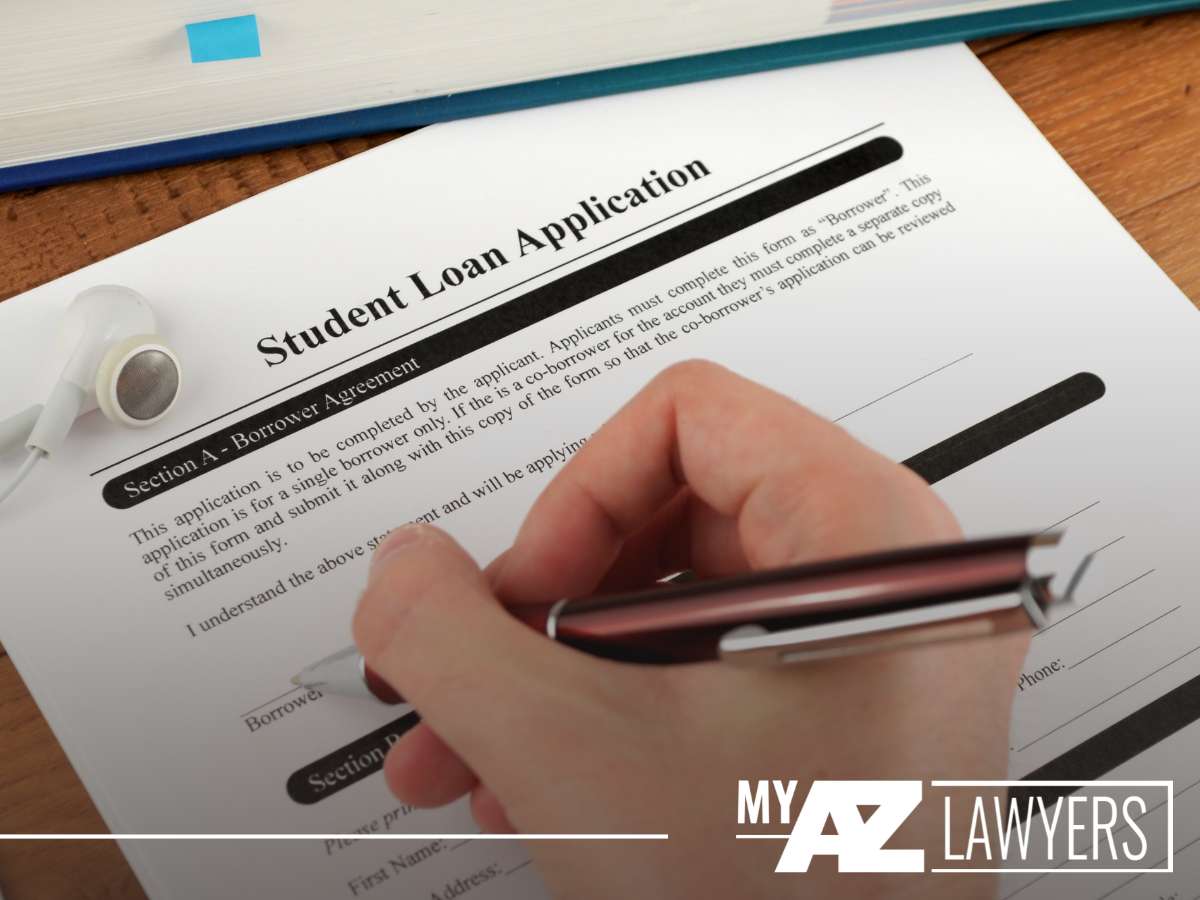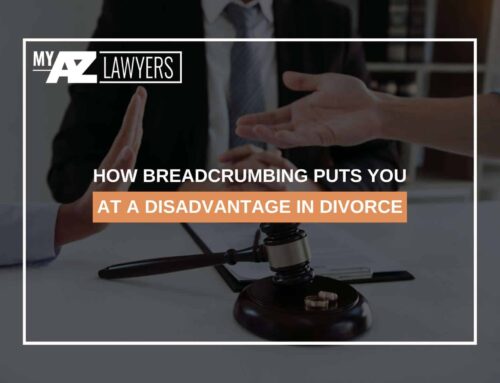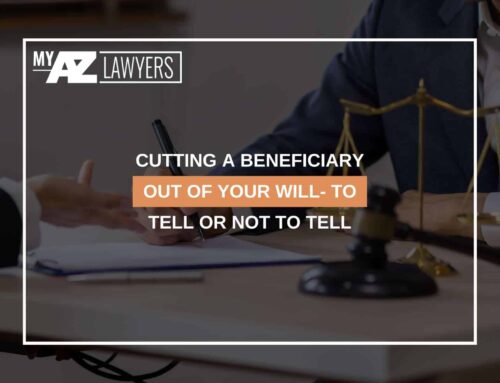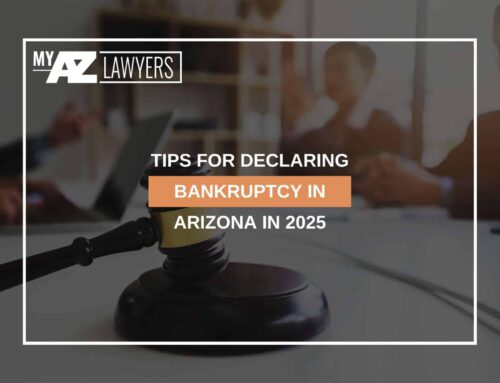How Student Loan Debt Affects Homeownership In Arizona
How Bankruptcy Can Help You Take Charge Of Your Student Loans & Homeownership
Student loan debt is a major burden for millennials and has become a significant factor in preventing younger people from homeownership. If student loan debt is very high, potential borrowers will not qualify for a mortgage. Others may find that they qualify for a mortgage, but feel they cannot simultaneously pay a mortgage while making their student loan payments.
Many borrowers wonder if they can alleviate their overwhelming student debt load by filing for bankruptcy, in hopes of discharging their student debt so that they can eventually purchase a home. Unfortunately, in the vast majority of cases, student loan debt cannot be discharged through filing for bankruptcy because there is no tangible asset. Borrowers would need to go through an extensive process to prove that repaying the loan would cause undue hardship.

Types Of Debt In Bankruptcy
When you file for bankruptcy, your Mesa bankruptcy lawyer will help you understand that some debts are dischargeable and others are not. Credit card debt, mortgages, and vehicle loans are common types of dischargeable debt. Taxes, child support, alimony, and student loans are non-dischargeable debts that cannot be eliminated by filing for bankruptcy.
Proving Undue Hardship
Most of the time, student loan debt cannot be discharged when filing for Arizona Chapter 7 bankruptcy or Chapter 13 bankruptcy. The debtor must prove that paying back their student loans would impose an undue hardship on themselves and their dependents, and ultimately requires filing a lawsuit against the creditor. Typically, these cases are only won when there is an extenuating circumstance, such as a severe and permanent disability that prevents the debtor from earning sufficient income.
For student loans to be discharged in bankruptcy, the debtor must prove:
- That at their current income, they are unable to maintain a very low standard of living if they must repay the students
- The additional circumstances that will perpetuate this standard of living are likely to continue throughout the majority of the repayment period
- That the debtor has already made good-faith efforts to repay their student loan debt
This is a difficult case for most people to prove. To have the best chance of success, you’ll want to consult with an experienced Phoenix bankruptcy law office who understands the bankruptcy process and can work on your behalf.
What Are The Consequences Of A Sex Crime Conviction?
Although sex crimes are considered Class 2 felonies in Arizona, the penalties for sex crimes can vary widely, depending upon which type of crime was committed, the age of the victim, whether a weapon or drugs were involved, whether it was a first or subsequent offense, and additional circumstances. Subsequent offenses will receive more severe punishments than first time offenses.
However, all sex crimes carry serious consequences that can be lifelong. In many cases, alleged offenders lose the opportunity to a plea bargain, because Arizona recognizes mandatory sentencing laws. For example, Arizona requires 5-14 of prison for those convicted of rape.
Other consequences of conviction can include:
- Long prison sentencing, often without the potential of parole or probation for at least 35 years
- Criminal fines
- Lifelong probation
- Registration on the Arizona Sex Offender Registry, which can be searched by anyone
- Loss of professional licensure
- Ineligibility for some careers and volunteer positions
- Psychological evaluation or risk assessment to determine whether the offender poses a risk to the community
- Difficulty with housing and employment
- Potential to lose child custody
- Loss of friends and family relationships
- Social stigma
Your East Valley criminal defense lawyer will work on your behalf to minimize your conviction and consequences.
Which Type Of Bankruptcy Should I Choose?
Although student loan debt is rarely discharged in bankruptcy, other debts, such as credit card debt, can be eliminated through bankruptcy. For many people, the elimination of other types of overwhelming debt provides enough financial flexibility that they can work toward homeownership even while making student loan payments.
It’s also important to realize that after filing for bankruptcy, you have a low likelihood of qualifying for a mortgage for 7-10 years, depending on which type of bankruptcy you choose to file. In the meantime, you can work toward repaying your student loans and other non-dischargeable debts. This puts many people in the financial position to take out a mortgage by the end of the 7-10 year period after their bankruptcy filing.
Two types of bankruptcy are available to most people: Chapter 7 and Chapter 13. Each has its requirements, positives, and negatives to consider. Consult with your Glendale bankruptcy attorney to learn more about which type of bankruptcy you qualify for and which might be the best choice for your situation.
Chapter 7 Bankruptcy
This is the most common type of bankruptcy. Some of your assets are sold by the bankruptcy trustee, who will use the proceeds to pay your creditors. Once this is complete, your remaining debt balance is discharged. Some debts, such as taxes, criminal fines, student loans, alimony, child support, and some contracts cannot be discharged. There are certain income limits and other requirements.
You will be able to keep your primary home and vehicle, and some other assets; the goal of bankruptcy is not to make someone homeless but to help them establish a fresh financial start. Chapter 7 bankruptcy will be completed within a few months, and the bankruptcy will remain on your credit for 10 years.
Chapter 13 Bankruptcy
Chapter 13 reorganizes your debts into manageable monthly payments, which you will pay for the next 3-5 years. Once this is completed, your remaining debts are discharged. Chapter 13 is a good choice for people who want to keep their homes, vehicles, and other assets. You must meet certain requirements to qualify for this type of bankruptcy.
Chapter 13 bankruptcy will remain on your credit for 7 years. Some people also choose to file Chapter 13 bankruptcy when they need relief from collections and want to gain some breathing room to get their finances in order.
Regardless of which type of bankruptcy you choose, be sure to consult with an experienced Gilbert bankruptcy law office who can evaluate your situation and provide advice. Filing for bankruptcy can be a strategic way to work toward home ownership or eradicate overwhelming debt so that you can move forward with your goals.
Consult With Mesa’s Leading Bankruptcy Attorney
Managing overwhelming debt can be exhausting and confusing. That’s why getting in touch with My AZ Lawyers can be the first step toward a brighter, freer future. We have assisted over 14,000 clients through the bankruptcy process and are ready to help you develop a personalized approach to managing debt that will work for you. Schedule your confidential consultation with us today!
Arizona Offices:
Mesa Location:
1731 West Baseline Rd., Suite #100
Mesa, AZ 85202
Office: (480) 448-9800
Email: [email protected]
Website: https://myazlawyers.com/
Phoenix Location:
343 West Roosevelt, Suite #100
Phoenix, AZ 85003
Office: (602) 609-7000
Glendale Location:
20325 N 51st Avenue Suite #134, Building 5
Glendale, AZ 85308
Office: (602) 509-0955
Tucson Location:
2 East Congress St., Suite #900-6A
Tucson, AZ 85701
Office: (520) 441-1450
Avondale Location:
12725 W. Indian School Rd., Ste E, #101
Avondale, AZ 85392
Office: (623) 469-6603












